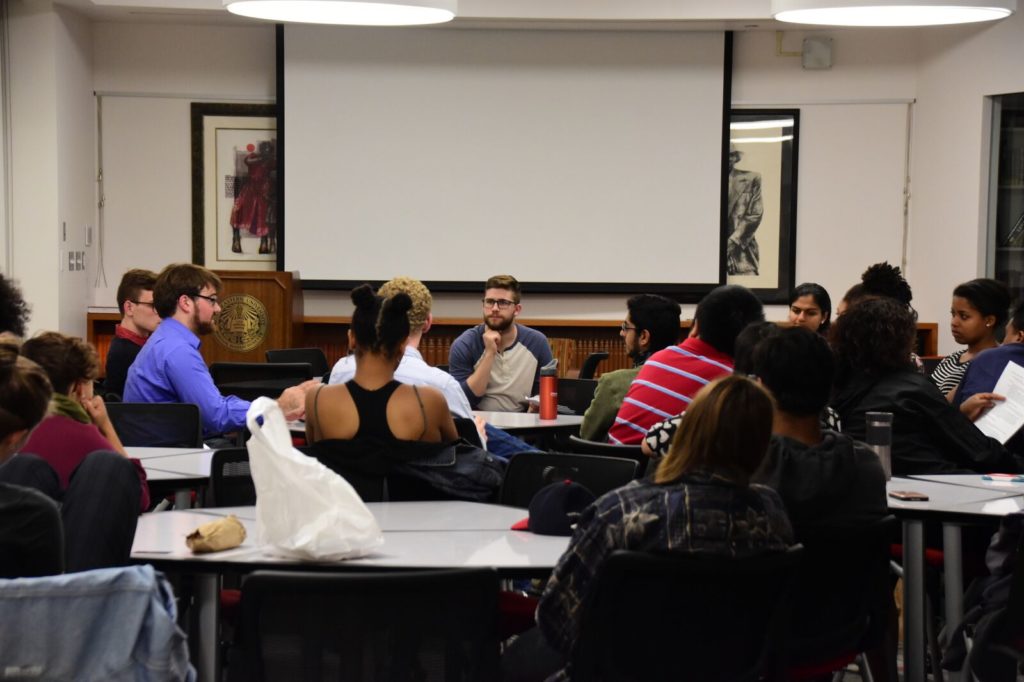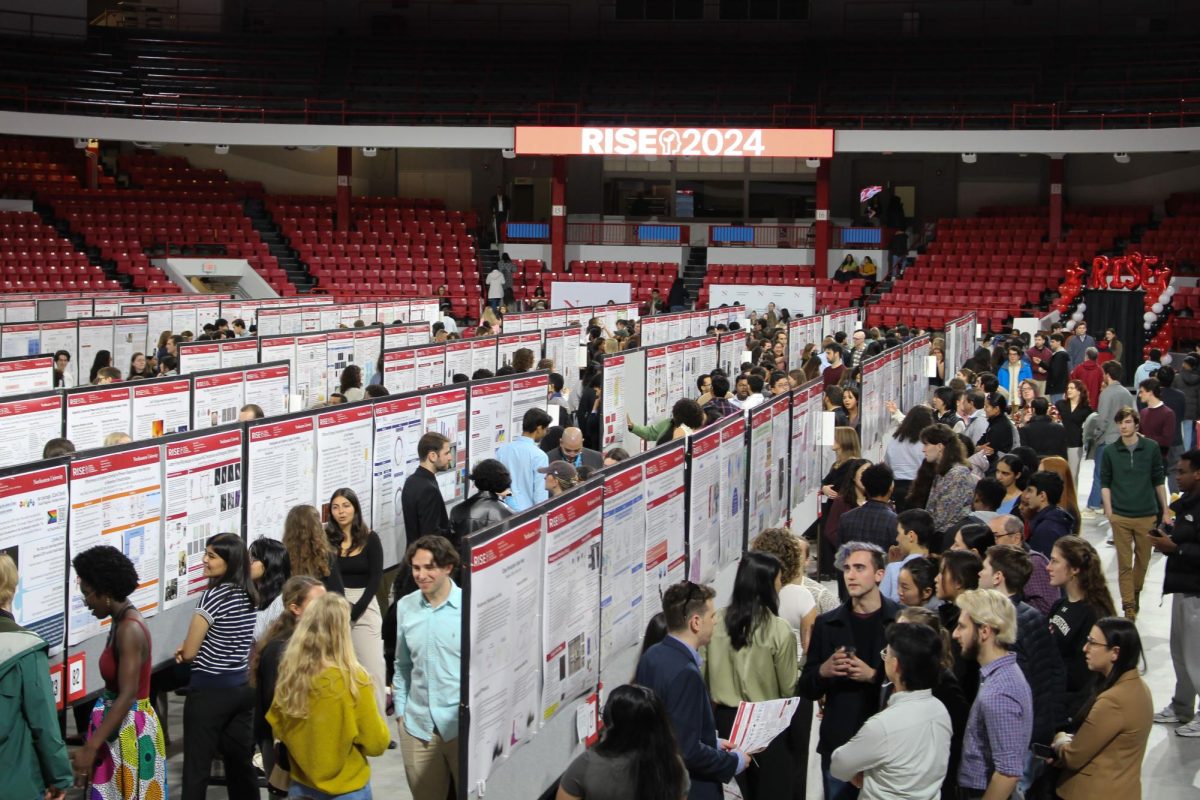By Alex Eng, news staff
Northeastern University’s Students Against Institutional Discrimination (SAID) sat down with the Student Government Association (SGA) for a town hall meeting Thursday, Oct. 20 to discuss reforming the SGA referendum process, increasing student involvement in university budgeting and amending the student government constitution.
SAID, a coalition of student groups that was formed in October 2015, works to minimize systemic discrimination and improve diversity training at Northeastern. This was the group’s third town hall meeting, called “Rethink SGA,” and was held at the John D. O’Bryant African-American Institute. It was moderated by SAID member Will Beaman.
“I think all of the actions that students proposed SGA take to make itself more present and available for marginalized students to use and participate in are very feasible,” said Beaman, a senior history and political science major.
Last year, SGA reformed the referendum process. In the new process, authors submit questions via OrgSync, meet with SGA leadership, present the question at a town hall meeting and have their question judged by a panel of six SGA cabinet members who then accept or deny it for the upcoming election.
SAID members argued there weren’t clear-cut definitions for the three criteria that SGA judges proposed referendum questions on — feasibility, fairness of wording and adherence to university policy.
The students also pushed to make SGA cabinet members’ voting records on proposed referenda public, and said they were opposed to having executive members decide on referenda over a more representative body such as the senate.
SGA Executive Vice President Suchira Sharma explained why a committee that reformed the referenda process last year decided to have cabinet members judge questions.
“The reason to bring [the judgement] back to cabinet was that previous referenda authors felt more comfortable bringing the process to six people that were elected, rather than leave it to the uncertainty with a 50-person senate where there is no formal election process,” said Sharma, a junior international business and finance and management major.
SAID members also suggested that the Budget Priority Survey, which students fill out each year to guide the administration on how to spend a specific slate of liquid funds, should contain more targeted questions about how Northeastern builds into surrounding communities.
Some students brought up the Burke Street housing development, a 22-story dorm currently under construction in Roxbury. It has faced heavy community opposition, as The News previously reported.
SGA Vice President of Academic Affairs Zachary Waggoner said using the survey to poll student opinion of university development would be unorthodox.
“[The Budget Priority Survey has] historically been a way for [the administration] to structure its future investments in the university,” said Waggoner, a junior majoring in electrical and computer engineering.
The SGA constitution requires that senate proceedings be recorded into minutes and made publicly available. Such a law may discourage Northeastern workers from making complaints against the university to the student body for fear of retaliation, according to SAID president Chelsea Canedy.
“If staff workers are placed on the record during these sessions, they would be put at risk of losing their jobs,” said Canedy, a junior biology and political science major. “The constitution would need to be amended to allow students to converse with third parties if the third party is self-advocating or fears reprise from the university.”
Beaman said he anticipated that disagreements between SAID and SGA members over matters of constitutionality would require intense efforts to break through.
“It would be ideal if we came up with something everyone can stand behind, but SAID is prepared to campaign for the proposals that we come up with no matter what,” he said.
Moving forward, SGA and SAID hope to conclude discussions with tangible results at their fourth and final town hall in early December.
Photo by Jonathan Northcott


















